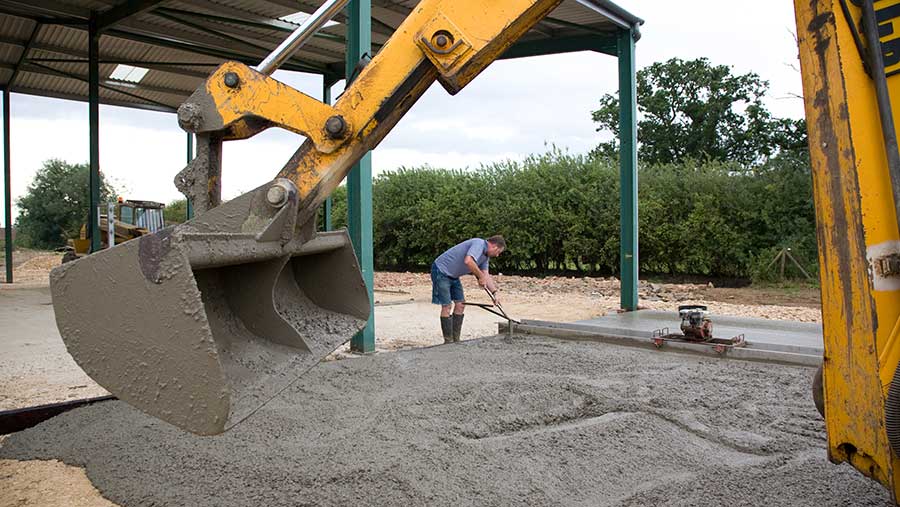Time running out to apply for valuable water grants
 Money is available for work such as concrete renewal and roofing © Tim Scrivener
Money is available for work such as concrete renewal and roofing © Tim Scrivener Farmers must contact their local catchment sensitive farming officer (CSFO) by the end of the month as part of applications for water capital grants through the Countryside Stewardship Scheme (CSS).
The grants will enable farms and estates in England to invest in works designed to improve water quality by reducing the amount of diffuse pollution entering watercourses and aquifers.
Money is available for work such as concrete yard renewal, the installation of rainwater harvesting equipment, alternative drinking sources for livestock away from watercourses or ponds, lined bio-beds, and the roofing of silage clamps, collecting yards, muck heaps, slurry and silage stores.
See also: Coronavirus: Applying for farm support schemes
They are available as a two-year option under the CSS or as part of a five-year mid-tier CSS agreement, alongside other land management plans.
Under the two-year scheme, farmers can receive grants of up to £10,000. If water capital items are included as part of a five-year CSS application, the grant amount is unlimited.
Farmers must be in a high water quality priority area to qualify for the two-year scheme and for certain options within the five-year scheme.
Proposals must be supported by the local CSFO, and the rules state that farmers considering applying for these grants must contact the officer by 31 May to arrange a visit for discussing their plans.
Coronavirus support
While all visits are currently suspended due to coronavirus restrictions, Natural England has said it will offer advice and support to farmers seeking to make an application by remote or digital means.
Paul Dennison, farming consultant in the Northallerton office of Strutt & Parker, said: “If farmers are intending to apply for water capital grants and did not have a visit prior to the current lockdown, our advice is to start a dialogue with your local CSFO as soon as possible.
“It is not yet clear whether CSFOs will be able to make a visit ahead of the final deadline for applications, but if not, then this part of the process may need to be done remotely.
“Farmers may find it beneficial to pull together the information the CSFO is likely to need, such as photographs, video footage and a map of the site which shows where watercourses and drain outflows are located, and where the options that will be on the application will be positioned.”
Mr Dennison said it would be important that applicants could show that their proposals offered value for money in terms of reducing pollution risk, with competition for CSS funding likely to be greater than for a number of years.
The last opportunity to request a CSS mid-tier paper application pack by email or phone is Sunday 31 May. Online application packs can be requested up to 30 June.
The final deadline for applications is 31 July.
